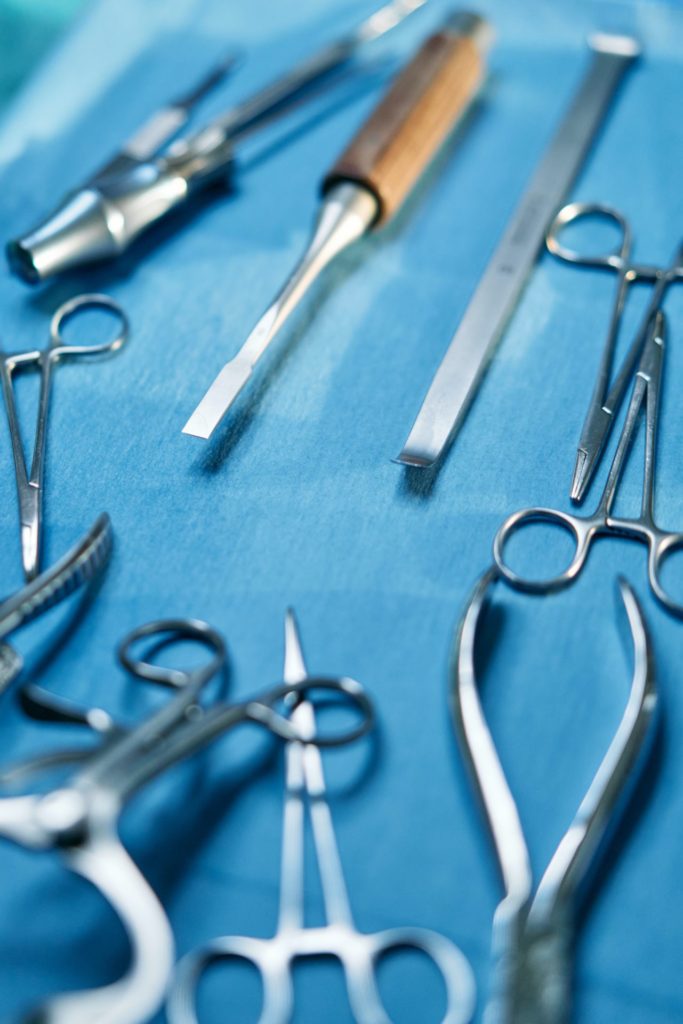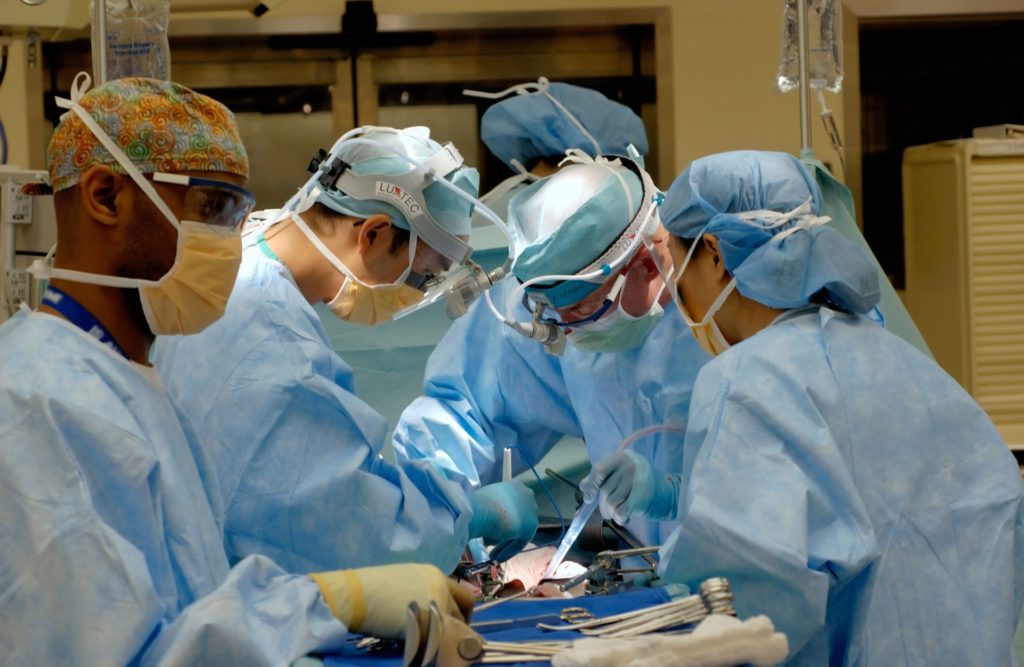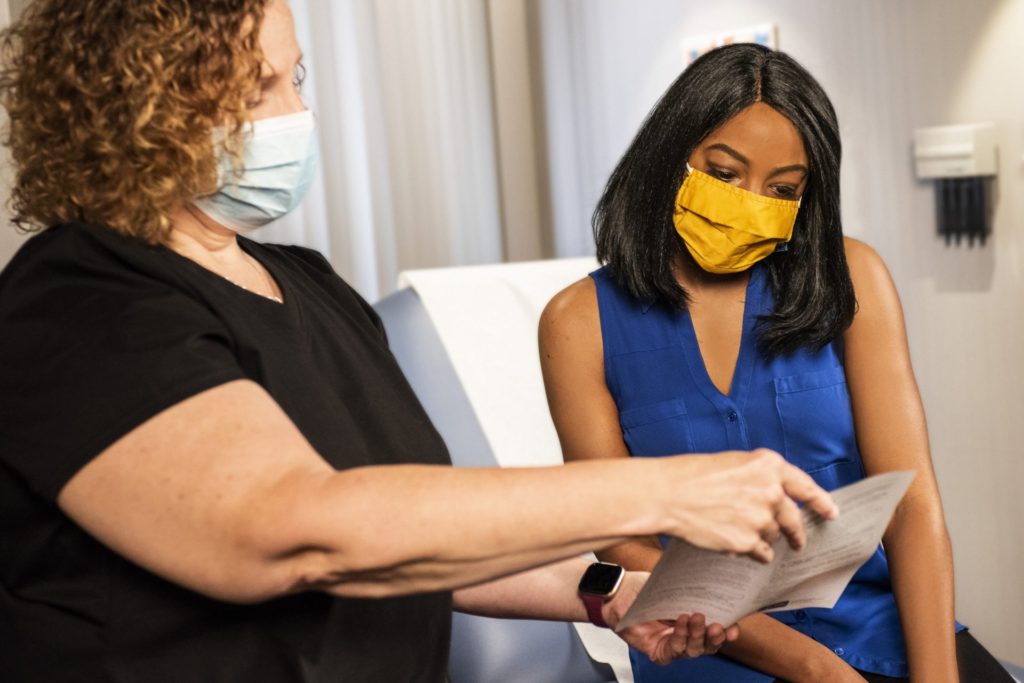Surgical procedures have become commonplace. People undergo surgeries every day in every part of the world for various reasons. Surgical procedures can be completed on a foetus in utero, while other procedures are performed on patients beyond 100 years of age. Yet, there are many people who may never have undergone a surgical procedure in their lives. Read this informational piece on how to best prepare yourself before going ‘under the knife.’
History shows that rudimentary surgical procedures date back as far as 6500 BC. In 1700 BC, in the Code of Hammurabi, there already existed ‘legislation’ regarding how surgical procedures needed to be carried out, guidelines around medical malpractice, and so forth.

Since the inception of surgical interventions to date, knowledge, techniques and surgical innovation has evolved exponentially. Surprisingly, it has only been since the early 1900’s, when anaesthesia was first introduced, that patients stood a better chance of surviving their surgeries.
However, even with constant improvements in the field of medicine, the anxiety and trepidation associated with the patient prior to surgery has likely not changed much since that very first procedure in 6500 BC.
More often than not, anxiety stems from the fear of the unknown. This can be easily remedied by being provided with clear and accurate information.
What is a surgical procedure?
The Oxford dictionary defines ‘surgery’ as “the branch of medicine concerned with treatment of bodily injuries or disorders by incision or manipulation, especially with instruments.”
In other words, you have an illness or an injury which can only be managed or treated by physically going into your body via incision or instruments and fixing it from the inside.
Increased need for surgical intervention

With the global increase in life-expectancy, and South Africa being no exception, people are living longer. This means that there are more older people now than there were 50 years ago.
An older population means that there may be more chronic diseases that require treatment, but also likely more injuries. Hip and knee replacements are common among the elderly due to falls or other degenerative conditions.
In addition to people living longer, ironically, people now lead a less healthy lifestyle than they did 50 years ago. With the global increase in obesity and the high prevalence of Type II diabetes, many risk factors are attached to these conditions which may lead to the need for surgical intervention.
Where can you undergo surgery?
Minor surgical procedures can be performed in a doctor’s consulting room. Some can be completed in day clinics, and others in bigger hospitals. For the purpose of this article, we will be referencing preparation for surgical procedures which take place in bigger hospitals.
How long does a procedure take and how long will you be in hospital for?
The one depends on the other. Are you going for something minor or major? Do you have any other co-morbidities, i.e. other illnesses or conditions in addition to the reason you’re coming for surgery? What is your age and weight? All of these will impact on how long a procedure will take and the recovery period thereafter.
How to prepare yourself before going in for a surgical procedure
Things to do prior to your procedure:
Make sure you understand the reason why you need to undergo surgery
Here are a few questions you could ask to gain better clarity. All of these queries will assist in better managing your expectations from the outset.
Do you have an illness or an injury? – e.g. Are you going for heart surgery or to fix a broken leg?
Will this procedure be once-off, or will it be the first (or part) of a series of surgical interventions?
What will the outcome of the surgery be? – Will the surgery solve the problem, or will it slow the condition down?
Ask questions about what will happen post-surgery
While many patients are concerned about the actual procedure, many times the hard work comes after the operation is done. Check with your surgeon what will be happening post-surgery. Would you have to remain in hospital for a few days for monitoring? Would you have to go for some sort of rehabilitation?
This would also assist you in knowing what the financial impact will be, whether you’re paying cash or going via medical aid. If you’re going in for elective surgery, you would then be able to plan ahead and possibly save some money ahead of time.

Provide the surgeon with all relevant information
When the surgeon asks you awkward questions about your health, family history and lifestyle habits, they are not trying to catch you out or embarrass you in any way. The reasons these questions are asked are purely for your own good.
Be clear on all your allergies. Also, let them know how you may have reacted during previous surgeries, whether good or bad, so that they may adjust their approach accordingly.
The more accurate the information they receive, the better the team can prepare themselves for your surgery. For example, if you fail to give a true account of how much you actually smoke, this could have a direct impact on your anaesthesia on the day of your surgery. If you have diminished lung capacity because of smoking, this could seriously hinder your ventilation while being operated on, as well as have an impact on other systems. If the medical team is aware of your cigarette usage, they will be able to prepare in advance.
Stop smoking
Speaking of smoking: if you are a smoker and you have an upcoming surgical procedure planned – stop smoking. Smoking affects both your lung and heart functions, and could create problems during and after surgery. No smoking could be greatly beneficial to ensuring a good outcome from your surgical procedure.
Be clear on the logistics for the day
Know where you have to report to and at what time you need to be there. Make sure that you know what documentation you need to bring along.
Your surgeon may give you an estimated time at which you will go into theatre. Note that this time is estimated. You cannot arrive 1 hour before your estimated time. The theatre list may change on the day of your surgery and they may want to take you in earlier or later than planned. Also, with Covid-19 there are additional measures which need to be taken, so it is best to be there early.
Make yourself aware about the facility’s Covid-19 protocols

Enquire about screening processes, if anyone is allowed to accompany you and also about visiting-time protocols.
You will be required to go for Covid-19 test prior to your surgery. If the test comes back positive, it is highly likely that your procedure will be cancelled for that day and rescheduled for another day.
Read, understand and sign the ‘informed consent’ forms
Read the information provided to you by the surgical team. You may receive information from your surgeon, anaesthetist and physician prior to surgery.
These documents will likely contain pertinent information about what you need to do prior to surgery as well as all the risks associated when undergoing surgery. It may also contain relevant information about the specialists’ rates that will be charged.

This information is provided to you so that you have all the necessary information at hand before your procedure, so that you can make an informed decision when signing consent. If something is unclear, ask for clarity prior to your surgery. The procedure will not go ahead *without your informed consent.
Inform someone you trust that you’ll be having surgery
You have to let a family member, friend, or someone you trust know that you’re going in for surgery. At the hospital, you’ll be required to provide an additional person’s number in the case of an emergency. Should something go awry, the hospital would need to let your emergency contact know.
Be realistic
Be realistic about your procedure, your recovery time, etc. A surgeon can only give their best estimate on what will happen during your surgical procedure. It may so happen that once they’ve ‘gone in’ that the problem may be smaller or bigger than anticipated. Both instances will impact on surgical time, anaesthetic and finances.
Things to do from the day before your procedure, leading into the day of surgery:
Get information from the Anaesthesiologist beforehand
This information is important, because in addition to all the information mentioned above, it will also tell you when you need to stop eating and drinking, which medications to keep on taking, which ones to stop prior to surgery, etc. Bring all your medication along to the hospital to show the anaesthetist. Strictly adhere to all the information provided as this will directly impact on your procedure.
Be patient
Whether you’re going to a public or private hospital, either way, your wait could be long. Go prepared. Take along something to read, an activity book, some earphones and your favourite music – and wait it out. And most of all, be patient with the staff around you.
Be prepared for the possibility of cancellation
Unfortunately, cancellations do happen on the day of surgery. Often, people with co-morbidities run the risk of being cancelled. Many times this is done because the medical team makes the assessment that your bodily functions are not running at its optimal levels to ensure safe surgery. If this is the case, you would likely be kept in hospital while tests are being run and treatment given to get your body better prepared for surgery.
You may also fall off the list should there be a serious emergency which needs to take priority.
Remain calm

As far as possible, try to remain calm. Keep your anxiety at bay by engaging in some sort of activity that will divert your attention. Do breathing exercises, listen to calming music or read something inspirational.
For those especially nervous patients, your doctor may provide you with medication to calm you before you go into theatre.
Pack sufficient items
You may end up staying for longer than expected. Pack enough items for a few days. Your family members may not necessarily be able to bring you additional things, depending on the facility’s Covid-19 protocols. So come prepared in advance.
Be prepared for any outcome
Without sounding too dramatic, you also have to be prepared for all eventualities of the surgical procedure. Take note of all the possible risks and go in prepared for any outcome. Get your paperwork sorted (such as a Last Will and Testament) before you go in, no matter how ‘small’ you consider the procedure to be.
*While this is the ideal, of course there is always the possibility of an emergency procedure, where you will have minimal preparation time, depending on the severity and urgency of your condition. In such an instance it will be difficult to maintain any degree of control. Chances are that life-saving choices will be given to you and you would need to make a quick, informed decision.

While it is imperative that you are 100% comfortable with undergoing surgical intervention, in such an instance any delays may be to your detriment. All doctors have taken the Hippocratic oath, in which the care and wellbeing of patients come first, so in an emergency situation, it would be best to trust the expert medical advice.
References:
Whitlock, Jennifer. “The Historical Timeline of Surgery.” Very Well Health, 11 April 2020, https://www.verywellhealth.com/the-history-of-surgery-timeline-3157332
Bor, J.,Herbst A.J., Newell M., Bärnighausen, T. Increases in adult life expectancy in rural South Africa: valuing the scale-up of HIV treatment. NCBI, February 2013. https://www.ncbi.nlm.nih.gov/pmc/articles/PMC3860268/
Khan, M., Hashim, M., King, J., Govender, R., Mustafa, H., Kaabi, J. Epidemiology of Type 2 Diabetes – Global Burden of Disease and Forecasted Trends. NCBI, March 2020. https://www.ncbi.nlm.nih.gov/pmc/articles/PMC7310804/
Smoking. American Society of Anaesthesiologists https://www.asahq.org/madeforthismoment/preparing-for-surgery/risks/smoking/





